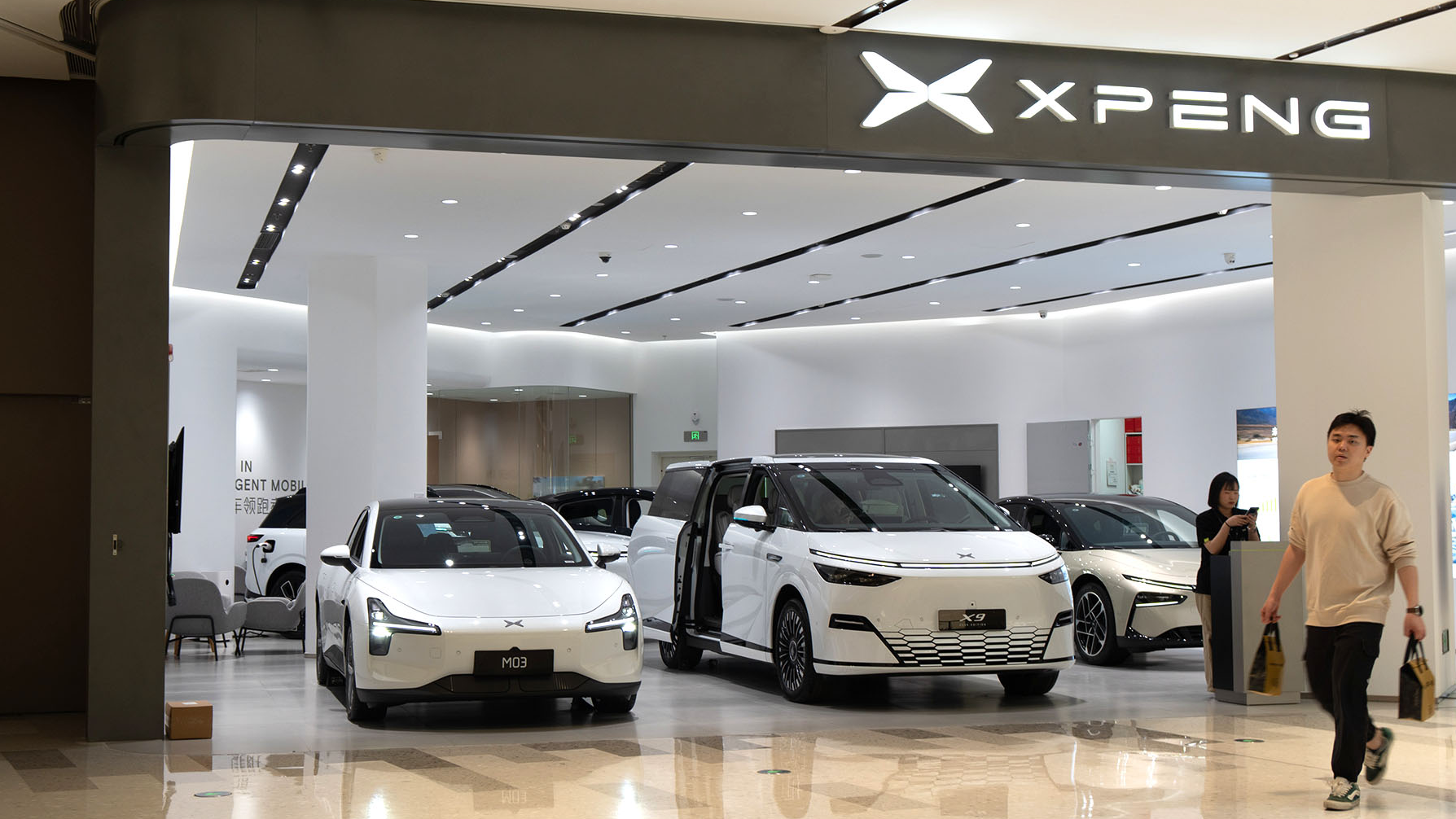
China is overhauling its pricing law after nearly three decades, a critical revision aimed at curbing cutthroat price wars, algorithm discrimination and other unfair market practices in the world's second-largest economy.
The draft amendment to the pricing law has been jointly drawn up by the National Development and Reform Commission, the nation's top economic regulator, and the State Administration for Market Regulation, the nation's top market regulator.
The move marks the first revision since the law was enacted in 1998 and placed on the legislative agenda of the Standing Committee of the 14th National People's Congress in 2003. The current draft amendment was released for public comment late in July.
The 27-year-old law's rewrite comes as China confronts a phenomenon increasingly lamented by economists and business executives alike — cutthroat competition, where firms spiral into destructive internal competition, often slashing prices below cost to gain market share.
Guo Liyan, deputy director of the Economic Research Institute at the Chinese Academy of Macroeconomic Research, said: "The amendment sends a clear signal that maintaining fair market competition is nonnegotiable.
"Selling below cost is a malignant form of involution. When it spreads, it erodes profit margins, drives more firms into losses and makes it harder to stabilize production or create jobs. It even hurts household income growth, particularly for low- and middle-income earners."
At the heart of the amendment are tougher and clearer rules on predatory pricing. The current law, experts said, applies only to goods and to sellers.
The revision, in particular, would broaden its reach to cover services and extend liability to third parties such as online platforms that set pricing rules.
The revised Article 14, for instance, seeks to ban operators from selling goods or services below cost for the purpose of "crowding out competitors or monopolizing the market", unless there are legitimate reasons such as clearance of perishable, seasonal or overstocked items. It also specifies that platforms cannot force other operators to price below cost.
Han Wei, an associate professor at the Law School of the University of Chinese Academy of Social Sciences, said, "The wording distills the essence of predatory pricing into two elements: the means, which is below-cost pricing, and the purpose, which is exclusion or monopoly."
Han added that including services and platforms into the amended law closes regulatory gaps. "It's especially important for sectors like food delivery, ride-hailing or online retailing, where platforms sometimes compel merchants to follow their rules, forcing them into loss-making price battles."
China is strengthening oversight of what it describes as involution-style competition, or cutthroat competition, and is aiming to foster a market that rewards quality and innovation while promoting healthier, more sustainable industrial development.
The 2025 Government Work Report released in March vowed to take comprehensive steps to address intense competition or cutthroat competition.
ALSO READ: Curbing cutthroat competition high on China’s agenda
The focus was cemented at a meeting of the Central Commission for Financial and Economic Affairs on July 1, where policymakers pledged to tackle disorderly low-price competition, guide enterprises to improve product quality, and facilitate the orderly exit of outdated production capacities.
Notably, the latest amendment also ventures into algorithmic pricing, data abuse and technology-enabled price manipulation, all of which are new problems emerging amid the development of the country's booming digital economy.
The proposed law reflects a transformed landscape. When the pricing law was first enacted, many goods and services were still led by people. Today, prices are largely market-driven and new business models emerge constantly, from livestream shopping to instant delivery.

Market regulators are facing problems unheard of a generation ago: flash sales triggered by algorithms, services unbundled to hide costs, and industries suffering self-inflicted price wars.
Liu Wuxing, director of the NDRC's price monitoring center, said that pricing work is facing clear changes, where most prices are now determined by the market. New industries, new models, and new formats are emerging, and low-price disorderly competition has become more prominent, Liu said.
The amendment adds a provision that operators "must not use data, algorithms, technology or rules to engage in unfair pricing behavior".
Meng Yanbei, professor at the Law School of Renmin University of China, said that as business and profit models continue to change in the digital economy, laws must evolve to address unfair practices.
"This amendment is a direct response to phenomena like algorithmic discrimination and big data backstabbing, where loyal customers end up paying more because platforms know their habits."
The draft also clarifies rules on collusion, price gouging and discrimination, and forbids public utilities, industry associations and others from abusing influence to force sales, bundle products or charge unreasonable fees.
Penalties are set to rise, including stiffer fines for failing to display prices clearly or refusing to provide truthful cost data during inspections.
Su Haopeng, a professor at the University of International Business and Economics and director of its consumer protection law research center, said the amendment is "in time".
"Digital tools have amplified both the reach and the opacity of pricing strategies. When platforms tweak algorithms or segment users, they can create unfair advantages that harm both competitors and consumers. The law now makes clear these practices will be subject to scrutiny."
The draft amendment is not happening in vacuum. It is part of a broad modernization of China's market regulation framework, working in concert with recent revisions to the anti-monopoly law and the anti-unfair competition law.
These laws already prohibit dominant firms from predatory pricing or forcing merchants into "either-or" choices.
ALSO READ: China's top auto dealers urge end to price war
Han from CASS said that governance of disorderly competition needs synergy.
"Each law tackles a different piece of the puzzle, but together they form a comprehensive oversight system. This will help rein in the worst forms of cutthroat competition," he said.
Officials also want enforcement to have teeth. The draft this time raises the cost for violations, making fines more substantial and spelling out liability for those who obstruct investigations.
It refines government pricing powers, allowing authorities to set pricing mechanisms rather than just fix prices and requiring cost reviews and public consultation before decisions.
Guo, from the CAMR, said these changes have a strategic dimension. "In a world of uncertainty, strengthening rules for fair, lawful price competition helps make China's unified national market more attractive, both internally and externally. It's not just about disciplining firms; it's about supporting high-quality growth."
Industry experts said that unrestrained competition could undermine profitability across sectors, discouraging investment and innovation. In industries such as manufacturing, logistics or consumer services, price dumping can spread losses and shrink payrolls.

In the new energy vehicle sector, for instance, manufacturers have been engaged in relentless price undercutting in an effort to prop up sales, resulting in declining profitability and stoking concerns about deteriorating quality.
In early 2025, over 60 car models slashed prices in China. Industry-wide net margins fell to 4.3 percent last year, according to the China Automobile Dealers Association.
Guo warned of wider consequences. "When profits erode, firms cannot sustain operations or expand hiring. In major public-interest sectors or when serious market failures occur, the government has to step in with stronger legal tools to correct the course."
The amendment thus positions price regulation as a foundation for the "high-quality development" China champions, a concept that ties economic efficiency to fairness and innovation.
For consumers, the law could mean more transparent and predictable pricing, fewer bait-and-switch tactics and stronger protections in the online world. For businesses, it signals not only a tougher stance on reckless competition, but also clearer rules of engagement, Guo said.
Ultimately, the 27-year-old law's rewrite is more than a necessity.
As Guo put it: "The market today is bigger, faster and more complex. Without updated rules, competition can become chaos. This amendment is about steering that energy into productive, sustainable growth."


